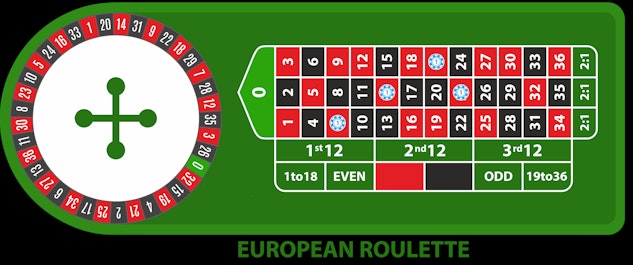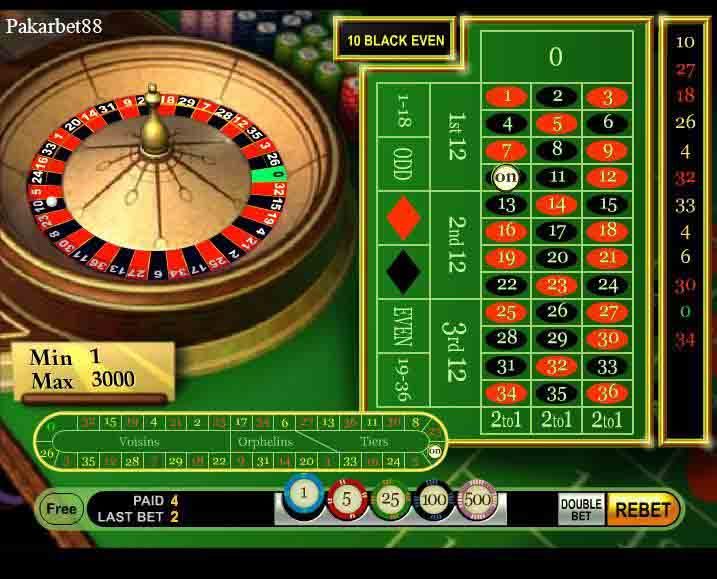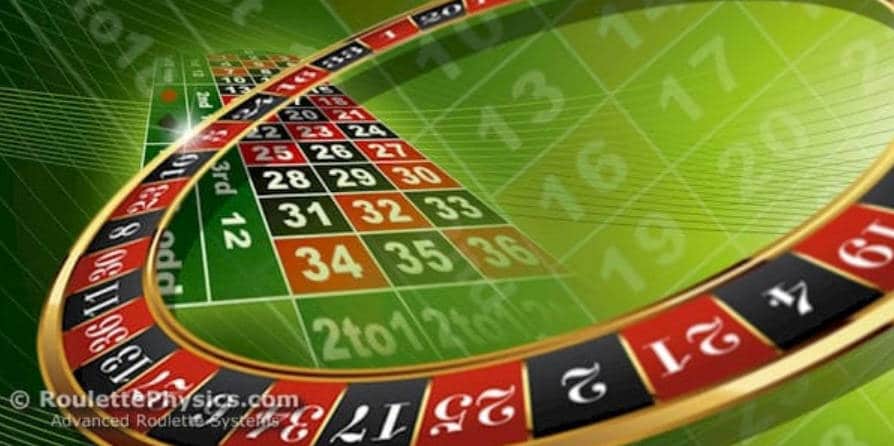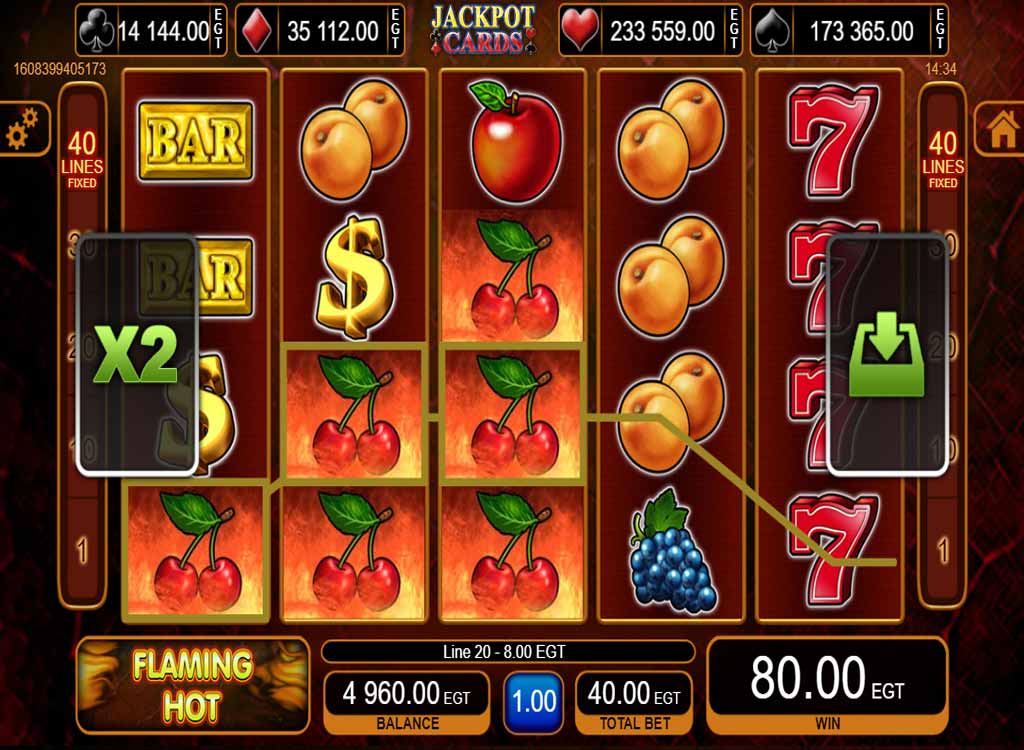Unfair Roulette
Is Online Roulette Random? Published by Marion Avina December 10, 2020 Categorie(s): Casino News, Gambling News. Is online roulette random? Well, this is a question asked by many players who have tried online gambling. After all, is there any way to know that any online casino game is truly random? A sequence of outcomes of spins of a fair or unfair roulette wheel is i.i.d. One implication of this is that if the roulette ball lands on 'red', for example, 20 times in a row, the next spin is no more or less likely to be 'black' than on any other spin (see the Gambler's fallacy). A sequence of fair or loaded dice rolls is i.i.d. Fair games are games where both (all) players have exactly the same chance of winning (outcome of the game is not affected by the order of players taking turns). I'd say, if there is pure luck involved - it's most likely to be a fair game. Good examples could be backgammon and russian roulette. Unfair game are those where there is a distinction. Hamburg Roulette safe. ECOGRA is the word on responsible gambling and protects players against unfair practices. All emails include an unsubscribe link.
Random Number Generators have been widely used in the development of virtual casino games and are preferred in many live dealer games, as well. But are they capable of actually making a game fair, could they be rigged by casinos and is there a way to beat RNG roulette? This article focuses on the importance of RNG and explains why it is applied in practically all virtual casino games.
- Bonus⋆80 Free Spins
- Bonus$300
- Bonus$300
What Is a Random Number Generator?
As its name suggests, the Random Number Generator or RNG is a complex algorithm that generates random numbers. It is added to virtually all video games that require randomness in one form or another. There are various hardware and software RNGs, and such devices are used in cryptography, computer simulations, statistical sampling, etc.
True RNG
To demonstrate why randomness is essential in providing a fair result, we could look at the roll of a dice or the flipping of a coin – we can never predict the outcome in these situations, which is why they are considered truly random and fair. True RNG systems always use some sort of mechanical device or physical phenomena to guarantee unpredictability. Although they are preferred and applied where possible, they are much more complex and rare due to their physical aspect.
Psuedo RNG
The most commonly used RNG systems are, in fact, pseudorandom number generators – they produce results that only seem random but are actually deterministic. Unlike true RNG, pseudo RNG typically operates through a computational algorithm that generates long sequences of apparently random numbers. These sequences, however, are based on a much shorter initial key, called a seed value.
Once the seed value is known, each long sequence can be reproduced. As we can see, this pseudo RNG cannot be regarded as a producer of truly random results. However, its use brings enough randomness and unpredictability to guarantee the reliability of crucially important systems such as modern computer encryption for security purposes.
RNG Manipulation in Games
Some casino players believe that since RNG (pseudo RNG, of course) is fundamentally a mathematical algorithm, it can be manipulated by casinos to gain an unfair advantage over patrons. We should not forget, however, that the house always has the advantage when it comes to gambling – in roulette, the theoretical house edge is 2.70% for European rules and 5.26% for American rules.
This clearly demonstrates that casinos do not need to manipulate the RNG in games to secure their income – the rules and payouts already guarantee that even if there are some very lucky players, the casino will eventually make a profit. The house edge provides gambling establishments with a long-term advantage over their patrons. This is why reputable, licensed online casinos use independently tested RNG and players can rest assured the games they play are completely fair.
Some gamblers believe that they can manipulate the RNG and secure their profits but this is not possible unless they have access to the code of the game. Others think that after observing the algorithm in a particular version of roulette, they can spot a pattern and use it to predict future outcomes. But this is also a misconception – guessing the seed value for the number sequences cannot be done unless we monitor millions of hours of play, which is, of course, unrealistic.
How and Why Do Casinos Apply RNG to Online Roulette?
1Mechanism of RNG Roulette

In virtual roulette, the wheel and the table are simply computer generated images designed to create a realistic casino look. The RNG algorithm, however, determines which number will win and the spinning of the wheel is simply a nice animation that has anything to do with the number that comes up.
In fact, the RNG constantly produces numbers while the player is placing bets, adjusting the bet size, etc. The algorithm works even if no one is playing. Once the Spin button is pressed, the RNG instantly generates the winning number and the wheel simulation is triggered. The number is displayed on the screen after the wheel stops moving. This creates an authentic look to the game.
Many live dealer roulette games also use RNG systems for determining the winning numbers. Instead of relying on mechanical wheels, which are prone to wear and tear, providers of live casino software switch to automated, RNG-based wheels. Of course, the game may still be hosted by a croupier who rather than spinning the wheel and tossing the ball is only responsible for announcing the winning numbers and acknowledging the winning bets.
2The Concept of Randomness
There are various misconceptions regarding the results produced by RNG roulette. Some players have difficulty understanding the concept of randomness in these games since they use software-based pseudo RNG. It is sometimes believed that the computer repeats the winning numbers over a certain period of time – for instance, the 7 will be hit at least once in 50 or 100 spins or that the 7 is “due” to win after a given number of spins.
Another example is that the gaming software repeats a sequence of numbers, so if we have 5, 13, 7, 28, 6, and 31, after a while, we may notice the same numbers being hit in the same order. The concept of hot and cold numbers is even more popular among players – hot numbers are those numbers that come up often, while cold numbers are numbers that have not been hit in a while.
In reality, RNG-based games do not produce predictable patterns or repeating sequences of numbers. If players do notice that certain numbers come out in any order, this is pure coincidence. Every one of the 37 numbers in a single-zero roulette is equally likely to be hit in each spin and has a probability of exactly 1/37 or 0.02702702702. This means that the 7 may be hit 10 times in a row. It also means that the 7 may not be hit even after 100 spins of the wheel.
Benefits of Playing RNG Roulette
Nowadays, online casinos offer a wide selection of games and most of them, including some live dealer games, rely on RNG. Random number generators are crucial for creating a gaming experience that is as close to the real one as possible. Although these pieces of software do not produce “true” randomness, they guarantee that the game is fair and the results are not rigged or manipulated in any way.
Fair Gaming
Nowadays, RNG is widely used in online games and in slot machines, video poker, or any other automated type of physical casino game. This was not the case, however, only a couple of decades ago when many of the games operated on different principles – slot machines, for instance, were designed to give the jackpot once in, let’s say, three months or six months. Other systems were engineered in such a way that jackpot amounts could be hit only after a certain number of rounds have been played.
But the majority of gaming machines and online games today are controlled by RNG, which guarantees that they are completely fair. While older programming and systems for paying out could be exploited by casino staff and players, the newer RNG-based software is regularly audited, with tests being performed by third-party companies. All respectable online casinos use RNG that has been certified and proven to be fair with thousands of simulations.
The Convenience of Virtual Games
Another benefit of playing RNG roulette compared to live roulette games is the convenience and variety of virtual variations. There are certain live tables with RNG-controlled wheels but most of the time, live games use mechanical wheels, real casino settings (or a TV studio), and a live human croupier. Live games come with their limitations, however.
For instance, players cannot choose the pace of the game and usually, they have up to 30 seconds to choose the preferred numbers and place their bets. There are no options such as Quick Spin or Autoplay and the game is controlled by the casino rather than the patrons. When it comes to virtual games that rely fully on RNG, players can customize the game in many different ways – change the color and design of the table, skip or play the wheel visualization, trigger Turbo Mode or Autoplay, etc.
The variety of RNG roulette games is also much greater than live versions. After all, the virtual nature of these games gives developers the freedom to create many innovative variations of the classic game such as Double Ball Roulette, Mini Roulette, Multi-Wheel Roulette, etc. RNG games also feature wider betting limits and, often, more liberal games.

Can You Beat RNG Roulette?
Many people have tried to prove that random number generators are flawed and open to manipulation. There are multiple websites, roulette guides, and books that promise to give you a method to beat the RNG. Furthermore, there are computer programs and bots that collect huge amounts of data from thousands of played rounds. The data is then analyzed to find patterns, flaws or certain sequences of numbers that can be used to make predictions.
All this may sound quite appealing to players who wish to find a way to beat casinos in their own game but, of course, it is unrealistic. Since RNG uses an algorithm and a seed value, it is impossible to identify any model. The results from it are, indeed, almost random and practically unpredictable.
The best way to play RNG roulette is simply to know the rules of the game and to apply a good, effective strategy such as making only even bets, avoiding bets that are highly unlikely to win, etc. Money management is just as important – players should always adjust the size of their bets based on their bankroll and risk tolerance. Overall, they should just enjoy virtual, RNG-based roulette games just like they would enjoy a real-life game in a land-based casino environment.
For as long as gamblers have wagered money on games of chance and skill, the temptation to cheat has loomed.
Unwilling to let fate decide, casino cheaters use creative and unscrupulous tricks to gain an unfair edge over the house.
Among the earliest methods employed by poker cheats, the gunslinging poker games of the Old West era saw cheats wield aces up their sleeves. These days, cheaters who plague poker can be found in both brick and mortar card rooms and online sites, colluding or dumping chips to team up on unsuspecting opponents.
Cheating in modern casinos predominantly afflicts the skill-based games like poker and blackjack, but you’d be surprised by how prevalent the crime has become in roulette and other games of chance. You wouldn’t think a simple wheel-spinning affair like roulette would be subject to cheating because players don’t really have any influence on the gameplay.
Nonetheless, cheats can be found anywhere real money is being wagered, and the roulette table is no exception. Even with the ever-present “eye in the sky” watching their every move, and eagle-eyed croupiers (dealers), pit bosses, and other staff members trained to detect malfeasance, roulette cheaters just can’t help themselves.
The allure of making easy money without incurring risk certainly makes sense, but trying to cheat the casino while playing roulette is a fool’s errand. Don’t take my word for it though, just ask the long lineup of convicted roulette criminals who tried the five ways to cheat at roulette listed below.
1 – Past Posting or Late Betting to Increase Wagers on Known Winners
Every roulette player knows the feeling well…
When you nail the number perfectly and watch the croupier stack the 35 to 1 payout, wishing you would’ve bet $10 instead of $1, the experience can be bittersweet to say the least. Beating long odds for a big payout is always cause for celebration, but when you only bet a few bucks, it can be easy to kick yourself for not putting more out there.
Some roulette cheaters aren’t content with their minimal payouts, so they resort to a tactic popularly referred to as “past posting.” Also known as “late betting,” the concept of past posting is quite basic on the surface. You add chips to your bet once you know it’s a winner.
When the croupier watches the wheel to find out where the ball landed, it will take them a split second to scan the spaces, find the ball, and turn their eyes back to the table before calling the number. In that split second, past posting artists use sleight of hand tricks to secretly add significant sums to their winning bet.
Let’s say you sprinkled various bets between $5 and $40 on several single-number spaces, using combinations of both the red $5 and green $25 chips. You have the number 17 covered with one $5 chip, but when you see the ball nestle into the 17 space, you instantly dart your hand out and cap the $5 bet with a $25 chip. The croupier never notices your trickery, and just like that, you’ve turned a $175 payout (35 to 1) on $5 into a whopping $1,050.
Why You Shouldn’t Try Past Posting
While potentially lucrative when undetected, past posting is inherently dangerous based on the moving parts in play.
A professional croupier is trained to scan and memorize the bets in play when they wave for final wagers, so they might notice your small chips suddenly transforming into big ones. While you’re watching the croupier, a nearby pit boss outside of your peripheral vision might see you make the switch. And up above, high-resolution cameras are recording every move you make.
Add it all up, and past posting just isn’t worth the risk involved, a fact Charbel Tannous and Constandi Lubbat can attest to. In 2011, while playing roulette at L’Auberge du Lac Casino Resort in Louisiana, the pair were caught red-handed past posting for big money.
After authorities used surveillance footage to confirm that over $175,000 was stolen via the roulette scheme, Tannous and Lubbat were charged with felony cheating and swindling over $1,500 and criminal conspiracy.

Tannous was eventually convicted and sentenced to 37 months in federal prison for organizing the roulette racket. This is a harsh punishment US Attorney Stephanie Finley made clear will be the norm for casino cheats:
“We are very pleased with the court’s decision to give this defendant a significant prison term. The casino and the citizens were victims in this case. A portion of the profits from the casino goes to the State of Louisiana and the Calcasieu Parish School Board.
We will continue to partner with our local, state, and federal law enforcement partners to prosecute crimes of this nature and seek the maximum amount of prison time available.” Free spin bonus no deposit uk.
2 – Partnering With a Croupier to Produce Fake Winners
If you read the previously linked reporting, you know Tannous and Lubbat didn’t work alone.
By conspiring with two croupiers working at the casino, these cheats made sure their past posting antics would never be reported.
That approach certainly makes sense on an objective level, too. By doubling down on the scam, colluding to ensure their cheating is allowed by the people running the table, conspirators don’t leave anything to chance. Having an “inside man” on the team only makes cheating at roulette that much easier, as a corrupt croupier can allow their partner to inflate winning bets or pull back chips on losers.
Why You Shouldn’t Partner With a Dealer
In 2016, a casino pit boss at the Horseshoe Casino in Council Bluffs, Iowa, decided to go rogue. He enlisted a croupier to do the dirty deed, and a third partner to act the part of lucky player. Past posting provided the bulk of the team’s $20,000 in ill-gotten gains, but like almost all roulette cheats before them, these three were eventually caught on camera and arrested.
David Dales, a special agent with the Iowa Division of Criminal Investigation (IDCI), issued a statement explaining how the scam was set up:
“There was a dealer that was doing some active cheating mechanism on the roulette table at Horseshoe Casino. And there was a patron he was consistently cheating for. The allegations are they were past posting – adding chips to the winning numbers – doing other activities that gave them illegal winnings at a table game.”
The offenders were charged with four felonies, including ongoing criminal conduct, first-degree theft, conspiracy, and cheating at gambling. They faced significant jail time and hefty fines.
3 – “Coloring up” Small Chips for Higher Denominations off the Table Before Cashing Out
An especially clever way roulette players can cheat the game involves the old bait and switch.
To make the “color up” scheme work, two players working in tandem start by sitting at different tables. In roulette, cash is turned into specially designed chips that are only good at the table. To avoid confusion between different players betting, everyone gets a different color chip in the denomination of their choosing.
A color up team moves from table to table, one buying in for the minimum $1 chips, and the other going bigger with a $25 or $100 denomination. When they both receive the same color chips, they’re always at a different table and only six or seven colors are in play so this will inevitably occur, the trap is sprung.
The low stakes player pockets a handful of chips on the sly, then heads off to take a quick bathroom break. With no surveillance cameras to worry about, they wait for their partner to hit the head as well, then they deliver a handful of chips when nobody’s around.
Flush with new chips in the same color as those at the big stakes table, the second player proceeds to play a spin or two with minimal action before requesting a color up and cash out.
When cheaters turn 10 of the $1 chips into an equivalent amount of $25 chips, they’ve instantly “earned” $240 in profit without incurring an ounce of risk. And if a $1 to $100 exchange rate is in play, the color up scam produces a massive $990 profit margin.
Why You Shouldn’t Color up Chips
Between 2012 and 2013, a highly organized team of color up cheaters based in New York toured the country targeting small commercial and tribal casinos. Their run came to an end in Ohio, after the team struck at four casinos and stole thousands of dollars, only for 13 members to find themselves behind bars when it was all said and done.
Karen Huey, director of enforcement for the Ohio Casino Control Commission (OCCC), told local media outlets that the Buckeye State was not alone:
“This is a very organized group of about 70 people. They travel the country. They’ve been identified in 18 states running this scam.”
Unfair Roulette Games
The roulette cheating team wound up facing 29 felony counts and the possibility of lengthy prison sentences. According to Lucas County Prosecutor’s Office Special Units Division Chief John Weglian, casino criminals will never receive leniency.
“One of the principle purposes of these casinos is to provide revenue to the State of Ohio so the laws that the legislature has passed cover casino violations will be enforced strictly by the Attorney General’s office and this office. We will enforce the laws of the state.”
4 – Using Hidden Lasers to Measure Ball Speed Before Betting Concludes
Unfair Roulette Sites
These last two are so absurd that they hardly merit mention, but based on their scientific innovations alone, they made the cut.
Back in the 1970s, a physicist at the Santa Fe Institute in New Mexico named Norman Packard postulated that laser beams could be used to measure crucial roulette variables. By using a laser and a computer to chart the ball and wheel speed, Packard succeeded in predicting which quadrant of the wheel the ball would land in.
Here’s how he described the gambit in an interview with New Scientist:
“In the best circumstances, we could predict the quadrant correctly. Even saying which half of the wheel is extremely powerful because the payoff is so good. We definitely got to the point where we were winning money, but we didn’t continue long enough to make large amounts.”
Why You Shouldn’t Use Technology to Cheat
Unfair Roulette Games
Obviously, pulling out a laser pointer and hiding a computer on your person is impractical in the modern casino setting. Maybe the laser cheat works in a laboratory, or even an old-school gambling hall before cameras became prevalent, but this is a method of cheating at roulette that would never fly nowadays.
5 – Directing the Ball to Certain Spaces by Generating a Magnetic Field
Using a laser pointer and a computer isn’t the most discreet way to cheat at roulette. So, how about a magnetic roulette ball to improve your odds?
In the early 2000s, a team of Austrian roulette cheats found a way to activate magnetic fields that drew the ball to certain numbers based on where the player stood. While the team didn’t win on every single spin, the use of a remote-controlled ball helped them improve their chances of winning.
Why You Shouldn’t Use Magnets
Unfortunately for this team of conmen, the croupier eventually found the ball stuck to his cufflink. The jig was up, forcing the cheaters to abandon their winnings and run away in shame. Today, some casinos use magnetic field sensors to prevent this from happening.
Conclusion
Unfair Roulette Meaning
Folks who feel the need to cheat at roulette represent the bottom of the barrel when it comes to casino gambling. Desperate and down on their luck, yet unwilling to simply learn a skill game and play it well, roulette cheats refuse to accept reality. And as the five entries above should show you, the run of free money always ends at some point, leaving prison, probation, and a ruined reputation as the roulette cheater’s only legacy.

